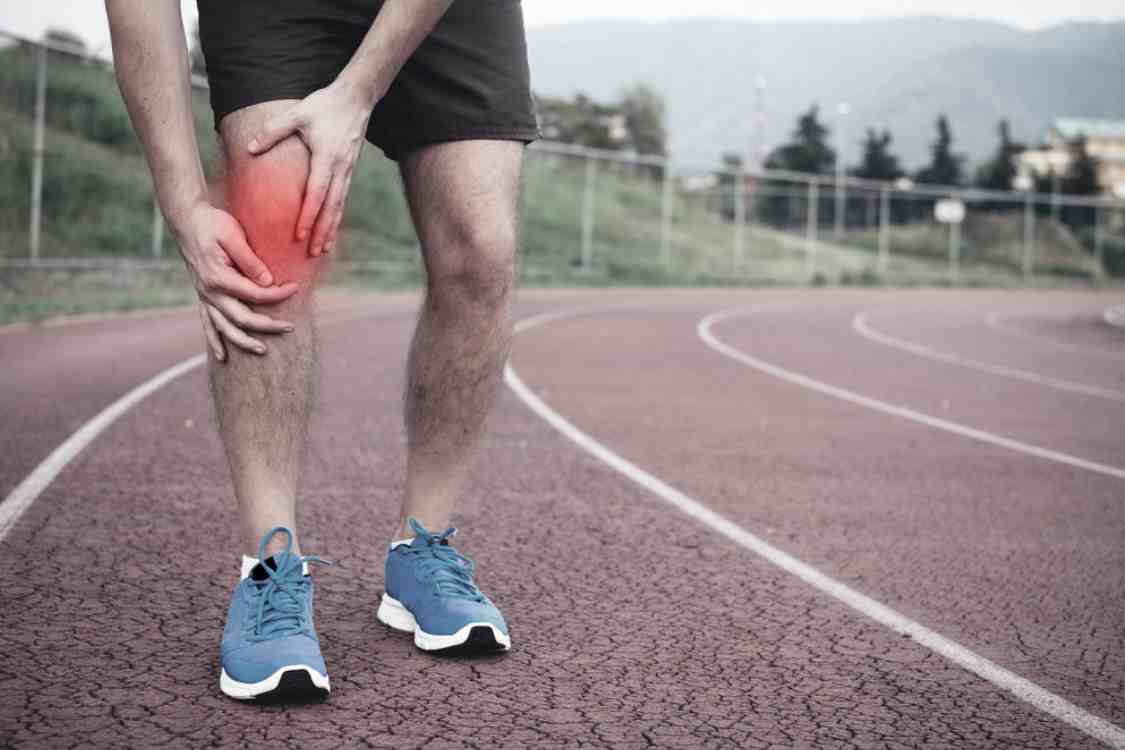
Running is one of the most popular and effective forms of cardiovascular exercise. It’s a great way to boost endurance, improve overall health and support longevity. Also, contrary to popular belief that running causes wearing of the joints leading to osteoarthritis, research suggests that regular running can actually reduce the risk of developing knee osteoarthritis. The impact from running stimulates cartilage regeneration, much like the “use it or lose it” principle, which helps maintain the integrity of the joint tissue.
However, knee pain while running is a common complaint amongst both beginner and seasoned runners. If you’ve ever experienced this discomfort, it’s essential to understand the reasons behind it, how to prevent it and how to treat the underlying cause/s.

Knee pain from running can be due to various causes, most of which are related to muscle imbalances or joint instability rather than the actual act of running itself. Let’s break down some of the most common causes:
Your hips play a critical role in controlling the movement of your legs when you run. Weakness in the hip muscle particularly the gluteus medius and gluteus maximus, can lead to poor running mechanics. When the hips aren’t stable or strong enough, the knee can collapse inward with each stride, putting additional stress on the knee joint and surrounding ligaments.

The muscles at the front (quadriceps) and back (hamstrings) of your thighs are essential for stabilising your knee joint during running. If one group is significantly weaker than the other, or if both are underdeveloped, your knee may not be supported properly, leading to pain and injury. Tight or weak quadriceps and hamstrings can also affect knee alignment and increase the risk of overuse injuries.
Strong calves absorb much of the impact that comes with running. When the calves are weak, more pressure is transferred to the knees, which can lead to joint pain. Calf muscles also play a role in controlling your foot strike and ensuring that your weight is distributed evenly during your stride.
The foundation of your running mechanics starts with your feet. Weak or unstable foot and ankle muscles can create a domino effect, leading to knee pain. Overpronation (when your foot rolls inward excessively) or supination (when your foot rolls outward excessively) can throw off your entire running pattern, causing your knees to track improperly.
At Invigorate Health and Performance, we understand how frustrating it can be to deal with knee pain while running. Our team of experienced practitioners specialise in diagnosing and treating musculoskeletal issues, including those that lead to knee pain. By addressing the root cause of your pain, we can help you get back to running pain-free and stronger than ever. Here’s how we can assist:
Knee pain doesn’t have to derail your running routine. The practitioners at Invigorate Health and Performance are here to help you resolve your pain, correct your running form and strengthen your body to prevent future injuries. Don’t let knee pain hold you back, book an appointment with us today through this link and take the first step towards running pain-free!
(Published Jun 4, 2025)
Written By: Nicholas Dimos (Physiotherapist)